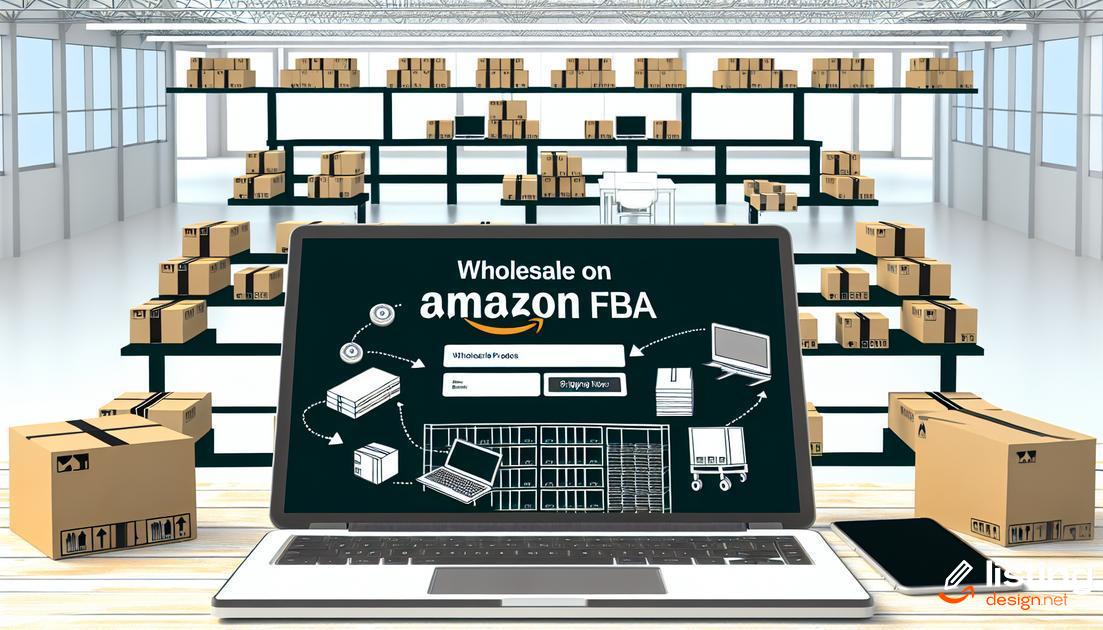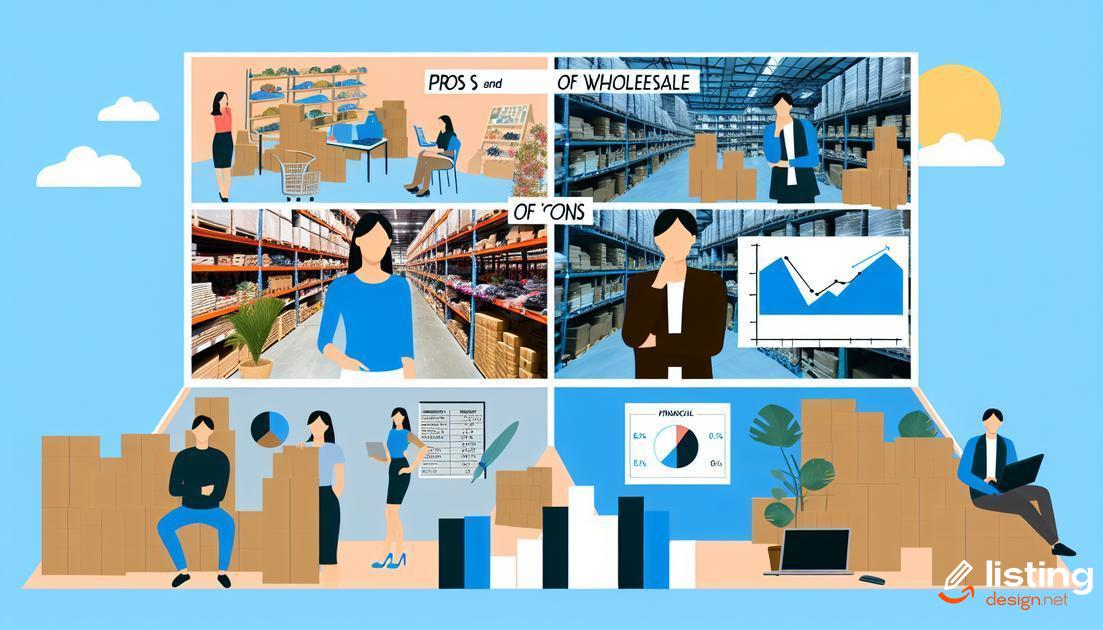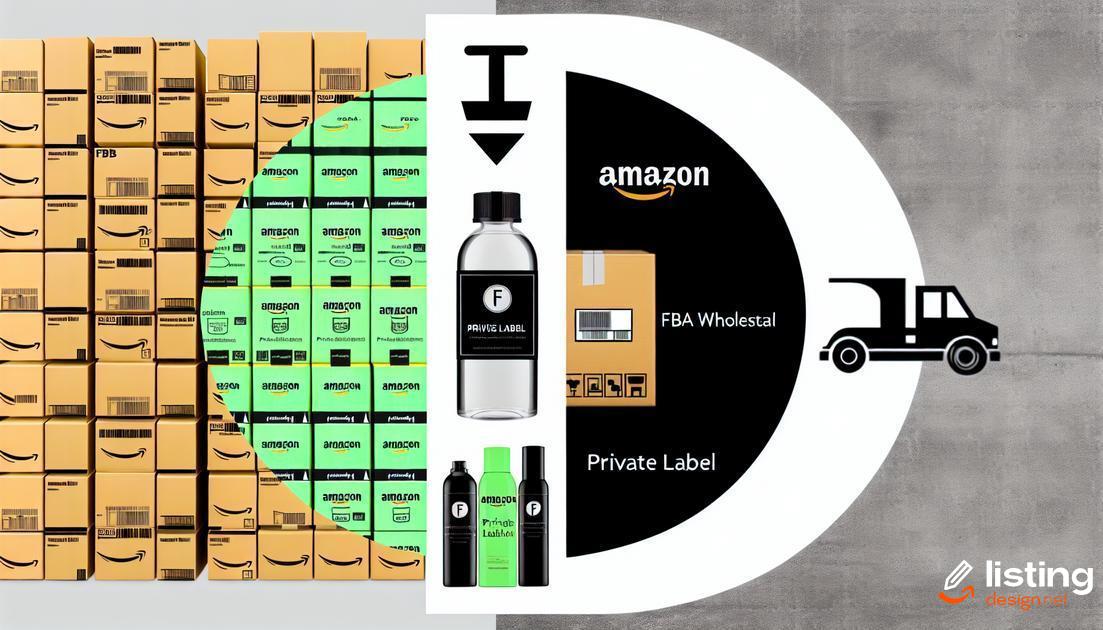When diving into the world of Amazon FBA, understanding the differences between Amazon FBA wholesale vs. private label is crucial. Both strategies offer unique benefits and challenges. In this post, we’ll explore what each approach entails, their pros and cons, and help you decide which might be the best fit for your business goals. Let’s delve into the intricacies of Amazon FBA and make an informed decision.
Table of Contents
Understanding Amazon FBA
Amazon FBA (Fulfillment by Amazon) is a service where Amazon stores, packs, and ships products on behalf of sellers. But why is this important? When you use Amazon FBA, you’re leveraging one of the world’s most efficient logistics networks, allowing your products to be eligible for Amazon Prime. This means faster shipping and increased visibility for your listings, leading to higher sales potential. Beyond managing your inventory and shipping, Amazon FBA also handles customer service and returns, freeing you to focus on other aspects of your business. For both wholesale and private label sellers, understanding the nuances of Amazon FBA is crucial for success. This service simplifies the selling process and provides a competitive edge in the vast Amazon marketplace.
What Is Wholesale on Amazon FBA?

Wholesale on Amazon FBA refers to the practice of purchasing products in bulk directly from manufacturers or distributors at a discounted rate, then reselling them on Amazon. This model leverages established brands and items with proven demand, allowing sellers to tap into an existing market without the need to create or market a new product.
Advantages of Wholesale:
- Established Brand Appeal: Since the products are already recognized, less effort is needed for marketing and building trust with customers.
- Predictable Demand: Products with a sales history on Amazon give clear insights into potential performance and demand.
- Lower Risk: As you’re dealing with known products, the uncertainty and risk involved are reduced compared to starting a new brand.
Disadvantages of Wholesale:
- Lower Profit Margins: The competitive nature of wholesale can result in smaller profit margins due to pricing wars and fees.
- Limited Control: Sellers have less control over product quality, branding, and packaging, which can impact customer satisfaction.
- Access and Restrictions: Some brands may have exclusive agreements or restrict who can sell their products, which can limit opportunities.
What Is Private Label on Amazon FBA?
Private label on Amazon FBA involves creating and selling products under your own brand. Instead of reselling products from existing brands, you source products from manufacturers and label them with your unique branding. This approach allows for more control over the product and its presentation, potentially leading to higher profit margins. With private labeling, you have the ability to differentiate your products from competitors by focusing on quality, packaging, and marketing. However, it requires significant research to identify profitable products and find reliable suppliers.
One of the biggest advantages of private labeling is that it enables you to build brand loyalty. Over time, customers recognize and trust your brand, which can lead to repeat purchases. However, it’s essential to consider that launching a private label product can be capital intensive. You need to invest in inventory, branding, and possibly even customization of the product. Additionally, there’s always the risk that the product may not sell as well as expected, which could lead to sitting on unsold inventory.
Pros and Cons of Wholesale

One significant advantage of wholesale is that it allows sellers to benefit from established brands. By purchasing products in bulk from reputed manufacturers, sellers can leverage the existing customer trust and recognition associated with those brands. This often leads to quicker sales and fewer marketing efforts.
Another benefit is the simplicity and predictability of the business model. Since wholesalers are dealing with pre-made products, there is no need for product development, which can save time and reduce risk. Additionally, inventory management is often more straightforward, as the products are generally uniform and standardized.
On the other hand, one drawback of wholesale is the potentially lower profit margins. Because you are reselling established products, the price points can be competitive, and there is often limited room for markup. Furthermore, initial investments may be higher due to the need to purchase in large quantities to obtain discounts.
Wholesale sellers can also face stiff competition. Since many businesses can access the same products from the same suppliers, it can be challenging to differentiate yourself in the market. In some cases, this can lead to price wars, which further erode profit margins.
Pros and Cons of Private Label
Pros of Private Label
Brand Control: With private label, you maintain full control over your brand. You can customize your product, packaging, and marketing strategy to fit your brand identity.
Higher Profit Margins: Since you own the brand, you can set higher prices than wholesale products, leading to better profit margins.
Customer Loyalty: By building a unique brand, you can establish a loyal customer base that returns for repeat purchases.
Market Differentiation: Private labeling allows you to create distinct products that stand out from competitors, reducing direct competition.
Creative Freedom: You have the flexibility to innovate and improve your product offerings based on customer feedback.
Cons of Private Label
Higher Initial Investment: Developing a private label product usually requires significant upfront investment in design, production, and marketing.
Longer Time to Market: Creating a private label product from scratch can take much longer compared to selling wholesale products.
Risk of Failure: If your private label product does not meet customer expectations or fails to generate interest, it could result in financial losses.
Complex Supply Chain Management: Managing a private label brand often involves dealing with multiple suppliers, quality control issues, and ensuring timely production and delivery.
Marketing Efforts: As a private label seller, you are responsible for all marketing activities to drive traffic and sales, which can be time-consuming and costly.
Which Strategy Suits Beginners?

Choosing the right strategy as a beginner can be challenging. When examining Amazon FBA Wholesale versus Private Label, several factors need consideration.
For starters, Wholesale requires less branding effort since you will be selling established products. This makes it easier to get started with fewer complexities in product development. The time to market is generally quicker, allowing beginners to generate revenue faster.
On the other hand, Private Label involves creating your own brand and labeling products yourself. While this demands more effort in research and development, it allows for higher profit margins and complete control over your product offering. Beginners who are creative and willing to invest time in branding may find this appealing.
Both strategies have their own set of advantages and drawbacks. Wholesale offers a relatively low-risk entry point into Amazon FBA, while Private Label offers greater long-term growth potential.
Cost and Investment Considerations
Initial Investment
When evaluating Amazon FBA wholesale, the initial investment is usually lower. This is because you can buy products in bulk from existing brands. There’s no need to spend money on product development or extensive marketing.
In contrast, private label demands a higher initial outlay. You’ll need to spend on product research, design, and manufacturing. Besides production costs, factor in expenses related to branding, packaging, and marketing to build your product’s reputation and visibility on Amazon.
Ongoing Costs
Maintenance costs for wholesale are typically less volatile. You may face periodic expenses for inventory restocking and occasional marketing pushes, but these are often predictable and manageable.
For private label sellers, budget for continuous expenses related to marketing, including sponsored ads and promotional events. Regular updates to your product or packaging may also incur ongoing costs as market trends and consumer preferences evolve.
ROI Expectation
Though wholesale involves lower upfront costs, the profit margins are often slimmer compared to private label. You’re likely selling well-known products at competitive prices, which can impact the overall return on investment (ROI).
Private label can offer higher ROI due to the potential of creating a unique brand and product line. This means you can set higher prices and enjoy better profit margins, although it comes with the risk of higher initial and ongoing investments.
Risk Assessment
With wholesale, the risks are relatively lower. Since you’re dealing with established products, there’s a lower chance of failure. However, the competition is high, and margins can be squeezed.
For private label, the risks are notably higher. You are investing significantly into a product without guaranteed market acceptance. There’s also the added pressure of brand building and customer acquisition, which can be a hit-or-miss.
Final Thoughts: Wholesale or Private Label?

Choosing between wholesale and private label for your Amazon FBA business can be challenging. Each approach has its own benefits and downsides, depending on various factors like budget, experience level, risk tolerance, and long-term business goals.
Wholesale often involves reselling established brands. One major benefit is the reduced risk associated with selling products that already have market demand. Additionally, wholesaling usually requires less initial investment in product development and marketing. However, competition can be stiff, and profit margins may be lower compared to private label.
On the other hand, private label allows entrepreneurs to develop their own brand and have more control over product quality and pricing. This strategy can result in higher profit margins and helps build brand loyalty. Nonetheless, it requires greater investment in product development, branding, and marketing. There’s also higher risk since you’re introducing a new product to the market.
Key Considerations:
• Assess your financial capacity and risk tolerance.
• Determine whether you prefer selling established products or creating a new brand.
• Consider the level of competition in your niche.
• Evaluate your ability to invest time and resources in marketing and brand development.
By examining these factors, you can better decide whether wholesale or private label aligns with your business objectives.


